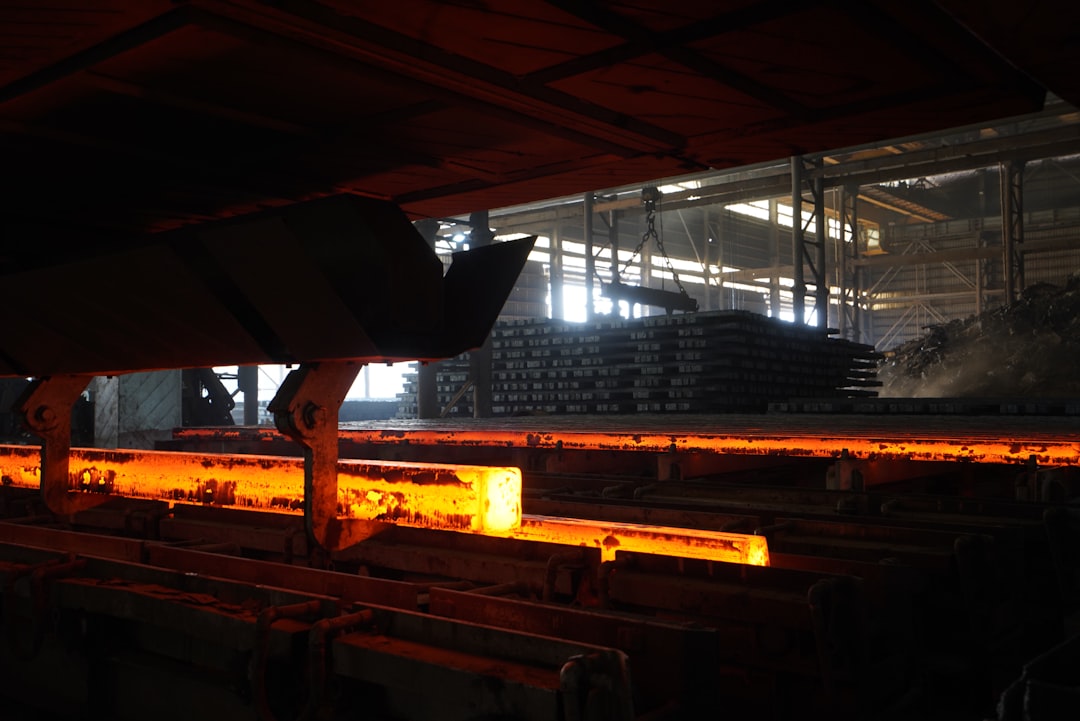body {
font-family: sans-serif;
line-height: 1.6;
}
h1, h2, h3 {
color: #333;
}
The steel industry is a cornerstone of global infrastructure and manufacturing. To thrive in this competitive landscape, demonstrating commitment to quality, safety, and environmental responsibility is paramount. This is where steel industry certifications come in. This comprehensive guide will navigate you through the world of steel certifications, explaining their importance, types, and how to obtain them.
Understanding the Importance of Steel Industry Certifications
Steel industry certifications aren’t just pieces of paper; they are powerful tools that unlock numerous benefits for businesses. They provide independent verification of your company’s adherence to stringent quality, safety, and environmental standards. This builds trust with clients, strengthens your brand reputation, and opens doors to new opportunities. Certified businesses often enjoy increased competitiveness, improved operational efficiency, and reduced risks. Moreover, certifications can demonstrate a commitment to sustainability, which is increasingly important to environmentally conscious clients and investors.
Specific benefits include:
- Enhanced Customer Confidence: Certifications reassure clients about the quality and reliability of your products and services.
- Increased Market Access: Some projects and contracts require specific certifications as a prerequisite.
- Improved Operational Efficiency: Implementing certified systems often leads to streamlined processes and reduced waste.
- Reduced Risks: Certifications demonstrate a proactive approach to risk management, minimizing potential liabilities.
- Competitive Advantage: In a crowded market, certifications can differentiate your business from competitors.
Key Steel Industry Certifications: A Detailed Overview
Several certifications are relevant to different aspects of the steel industry. The most prominent include:
- ISO 9001:2015 (Quality Management Systems): This internationally recognized standard focuses on establishing and maintaining a robust quality management system. It ensures consistent product quality, customer satisfaction, and continuous improvement. It’s relevant for all stages, from steelmaking to fabrication and distribution.
- ISO 14001:2015 (Environmental Management Systems): This certification demonstrates a company’s commitment to minimizing its environmental impact. It covers aspects like waste management, energy efficiency, and pollution control, crucial for responsible steel production.
- ISO 45001:2018 (Occupational Health and Safety Management Systems): This standard emphasizes worker safety and well-being. It requires the implementation of a robust system to identify and mitigate workplace hazards, reducing accidents and promoting a safe working environment.
- ASME (American Society of Mechanical Engineers) Certifications: ASME offers various certifications related to pressure vessels, boilers, and other critical components used in steel structures. These are essential for ensuring the safety and reliability of high-pressure systems.
- Industry-Specific Certifications: Depending on the specific niche within the steel industry (e.g., structural steel fabrication, steel pipe manufacturing), additional specialized certifications may be relevant. These are often developed by industry associations or regulatory bodies.
The Certification Process: Steps to Success
The certification process generally involves several key steps:
- Gap Analysis: An assessment of your existing systems and practices to identify areas needing improvement to meet the requirements of the chosen certification standard.
- Implementation: Implementing the necessary changes to your management systems, processes, and documentation to align with the standard’s requirements.
- Internal Audit: Conducting an internal audit to verify that your systems are functioning effectively and meet the standard’s requirements.
- Management Review: A formal review by top management to assess the effectiveness of the implemented system and identify areas for improvement.
- Certification Audit: An external audit conducted by a certified body to verify compliance with the standard. This involves document review, on-site inspections, and interviews with personnel.
- Certification: Upon successful completion of the audit, the certifying body issues a certificate demonstrating compliance with the chosen standard.
- Surveillance Audits: Regular surveillance audits are required to maintain certification, ensuring continued compliance with the standard’s requirements.
Choosing the Right Certification for Your Steel Business
Selecting the appropriate certification depends on your business’s specific needs, goals, and the market you serve. Consider the following factors:
- Your target market: Do your clients require specific certifications? Research industry standards and customer expectations.
- Your business goals: What are you hoping to achieve through certification? Increased market share? Improved efficiency? Enhanced reputation?
- Your resources: Certification requires investment in time, resources, and expertise. Assess your capabilities and budget.
- Long-term benefits: Consider the long-term benefits of certification beyond immediate gains. Will it contribute to sustainable growth and competitiveness?
Maintaining Your Steel Industry Certifications
Obtaining a certification is just the first step. Maintaining it requires ongoing effort and commitment. This includes regularly reviewing and updating your management systems, conducting internal audits, and participating in surveillance audits conducted by the certifying body. Continuous improvement is key to maintaining compliance and maximizing the benefits of your certifications. Regular training for employees on relevant standards and procedures is also crucial. Failure to maintain certification can lead to its suspension or revocation, negatively impacting your business reputation and market position.
By understanding the importance, types, and process of steel industry certifications, you can position your business for success in a competitive market. Embrace the opportunity to demonstrate your commitment to quality, safety, and environmental responsibility, and unlock the potential for growth and prosperity.
Tags: steel certification, steel industry certification, ISO 9001, ISO 14001, quality management, environmental management




